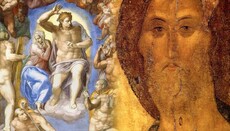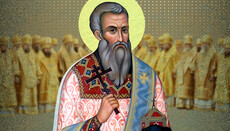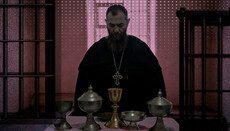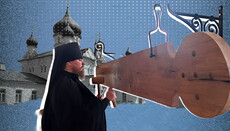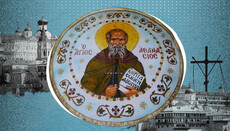From border guard to Christian: What is the “trace” of sin?
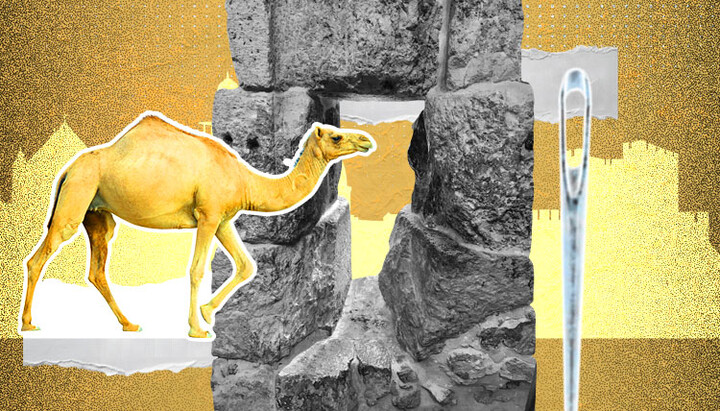
A recollection from border service, when a dog caught a trail, becomes a reason for reflection. What, after all, is the “trace” of sin?
When you watch a movie scene where a dog picks up a scent, don’t believe it – any dog handler will tell you: that’s not how a dog really follows a trail.
I remember my first track in the hills of Tetri-Tskaro, when, at the school for dog service instructors, my shepherd dog, Jean, worked his first 500-meter trail. The dog picked up the scent of the assistant cadet who had laid the trail on the wet grass and began weaving back and forth to process it, head slightly lowered, moving in the direction of the “border violator.” I encouraged him with the words, “Good, track!..” and he, wagging his tail, darted forward until the assistant was discovered under a bush, hiding under a canvas raincoat on a stick, into which my loyal Jean sank his teeth.
I had been drafted into the border troops many years ago together with my year-old shepherd dog.
“Find the track!”: Work on the border
There were dozens of other trails after that, some two or more kilometers long. The hardest were those where we had to detect the trail on a stretch of terrain indicated by the sergeant during drills: “An unknown person was spotted in this sector. Your task – to apprehend him.” And I would set the dog to search the area with the command: “Find the track!”
The dog would then rush about within the designated sector, sniffing the ground until I was convinced he had found the trail and launched forward in pursuit of the “violator.” The age of the scent ranged from fifteen minutes to three hours.
The hardest trail we worked was at the Gorgazeti outpost, where we served for over a year after Tetri-Tskaro, in the mountains of the Caucasus. The scent was six hours old. We were taking the exam for the 2nd class of military specialty under the supervision of Major Kuznetsov, the chief dog handler of the Batumi border detachment. It was my own initiative to take the exam – I believed my dog could handle even more complex tracking work.
The major spent the night at the outpost, and early in the morning, while I was still asleep, he took a soldier-assistant down to the edge of the Machekhel River and sent him somewhere into the mountains across a suspension bridge to the other bank – in an unknown direction.
I remember vividly how Jean picked up the scent after searching the area, raced to the bridge, and bounded up the trail. The assistant, a short, round Georgian named Alavadze, had turned left onto a tobacco field belonging to local Adjarians; the dog lost the scent there – among tobacco plants a dog cannot track. Crossing the field diagonally, we picked up the scent again and rushed uphill. Alavadze had climbed into a corn-drying shed and was “apprehended” peacefully sleeping on the cobs, while I showered him with colorful remarks about his walk through the tobacco field.
That’s how we earned our 2nd-class tracking qualification and later received a certificate “For the Best Training of Service Dogs in the Batumi Border Detachment.” In the euphoria of victory, I suggested to the major that we try for 1st class with a ten-hour-old trail, to which he smiled and replied, “Second class is enough for you.”
A trace on the soul: the phenomenon of memory and sin
Now, having reached mature years, I marvel at the phenomenon of memory – how it holds episodes of the distant past, as if watching a vivid film starting from one’s earliest years. For instance, I clearly remember walking with my father in a stroller, from which I once tumbled onto the ground, scaring my young father half to death. Or the pattern of neon light filtering through the window curtain onto the ceiling in the evening room where I had been put to bed: the pattern shimmered with the movement of the drapes, and to me, it seemed like radiant warriors on horseback...
They say that in one’s final moments, a person is granted to see, in a swift instant, their entire life in detail.
The soul retains everything bright and dark experienced in life, leaving an indelible trace. And woe to the soul when the dark prevails and nothing can be undone: the darkness already rules over it, and it suffers torment…
I remember at my first confession, with tears of burning shame, telling the priest how, as a child, I had hurt my beloved little sister by kicking her. And then I confessed many other things. The priest calmed me with a few words: “Since you were baptized at twenty-six, all your sins before the baptismal font are forgiven.”
That is the mystery of Christianity and of confession itself. Each time, the priest’s words over my head strike me with their power: “The Lord and God Jesus Christ, by His grace and compassion for mankind, forgive you, child; and I, His unworthy priest, by the power given unto me, absolve you from all your sins, in the name of the Father, and of the Son, and of the Holy Spirit. Amen.”
“Satanic trace”
The traces of sin, like burning wounds, torment the soul. Often in life, as the holy fathers teach, these wounds remain unopened and seem invisible.
But the person is already struck by sin, unable to see the truth or move toward God – he has already stepped onto the satanic trail.
After the soul separates from the body, the wounds of sin burst open like boils, and the soul dwells in darkness, where there is gnashing of teeth and endless death…
Of course, in those youthful years of our border service, we still kept a childlike sincerity and were ready to lay down our lives for our friends (John 15:13). We didn’t think of wealth or earthly glory; there was neither envy nor malice in us.
To unload the burden: the camel and the eye of the needle
In the Gospel, Jesus Christ says: “It is easier for a camel to go through the eye of a needle than for a rich man to enter the Kingdom of God” (Luke 18:25).
Rich – above all – in sins. The “eye of the needle” was the name given to a small gate in the wall of Jerusalem. To lead a camel through that tiny gate, the traveler had first to unload the great bundles from its back, and only then could the animal pass through.
So too must we, if we wish to enter the Heavenly Jerusalem, unload the burdens of our passions and sins.
The holy fathers especially warned against the load of mortal sins that make a person liable to eternal death and perdition.
According to Saint Ignatius (Brianchaninov):
- Pride – that despises all, demands servility from others, seeks to ascend into heaven and be like the Most High: in a word, pride unto self-deification.
- The insatiable soul – or Judas’s greed for money, usually joined with unjust gain, leaving a person no moment to think of the spiritual.
- Fornication – the debauched life of the prodigal son, who squandered all his father’s inheritance on such living.
- Envy – which drives one to every possible evil against one’s neighbor.
- Gluttony or sensual indulgence – knowing no fasting, bound with a passionate love of entertainments, like the Gospel rich man who feasted splendidly every day.
- Unrelenting wrath – that leads to terrible destruction, like Herod who, in his anger, slew the infants of Bethlehem.
- Sloth – or complete indifference to the soul, negligence of repentance until the final days of life, as in the days of Noah.
Blessed are we Christians, who have the Church of God – for within it even the heaviest and most bitter trace will be forgiven us!
